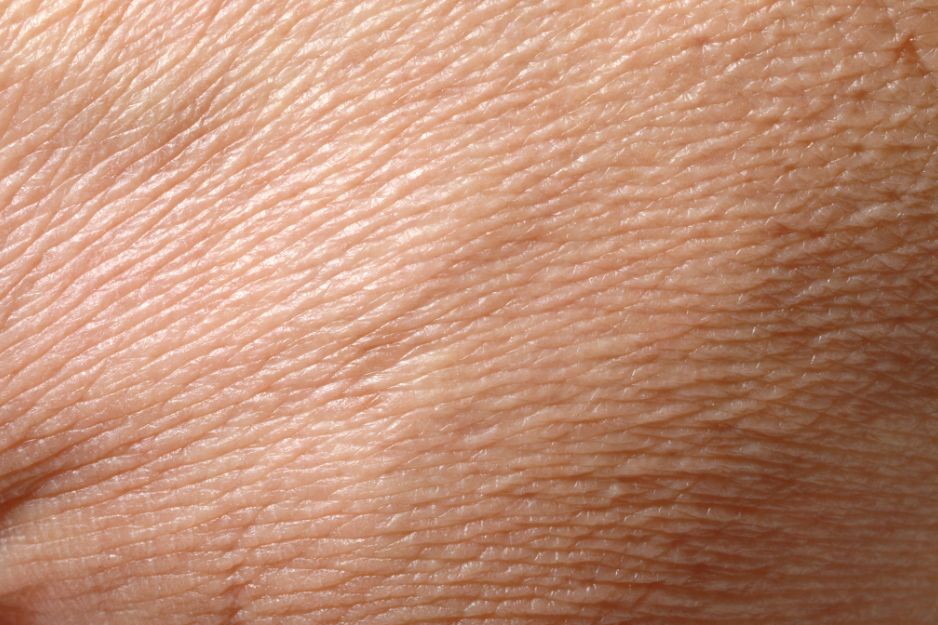Does your skin feel dry, especially around your lips and nose? Is it flaky or sensitive? Are you struggling with makeup because it doesn’t sit right on your skin? Well, this article and the product we want to introduce, might just be what you need!
Lots of folks deal with dry skin, so you’re not alone. This article offers a solution you might love: a saffron mask! Saffron is a natural ingredient gaining popularity for its potential to combat dryness. Give it a try and see if your skin feels soft and happy again!
Table of Contents
What is Dry Skin?
Dry skin simply means your skin lacks moisture. It can feel rough, tight, and flaky, especially on areas like your cheeks, lips, and around your nose. Dry skin can be caused by many things, including genetics, age, old weather, certain medications, hot water shower, how often you bathe, the changing seasons, and not drinking enough water. Basically, it’s when your skin’s oil-producing glands (Sebaceous gland) aren’t doing their job well and your skin doesn’t have enough natural oils. When your skin lacks moisture, it can become rough, flaky, and prone to irritation and itching.
What is Dehydrated Skin?
Dry skin and dehydrated skin are often confused, but they’re actually two different things.
Dehydrated skin lacks water, making it feel tight, itchy, and uncomfortable. Unlike dry skin, which often lacks natural oils, dehydrated skin can actually occur in people with oily or combination skin types.
Dehydrated skin occurs when mineral composition and water levels in the body are not balanced. Consuming fast food, inadequate water intake throughout the day, and excessive use of mineral supplements can lead to dehydrated skin.
What Are The Differences Between Dry Skin and Dehydrated Skin?
- Dry Skin: Lacks natural oils, causing a rough, flaky texture.
- Dehydrated Skin: Lacks water, making it feel tight and uncomfortable.
Dry skin is a skin type, while dehydrated skin is a temporary condition that can happen to anyone. By staying hydrated and using the right skincare products, you can address dehydrated skin and restore its healthy glow.
What Causes Dry Skin?
If you don’t naturally have dry skin but notice dryness in areas like your hands, face, arms, and legs, you should investigate the cause. For instance, in recent years, due to the COVID-19 pandemic, people have been washing their hands more frequently with soap or using alcohol and disinfectants, leading to increased complaints of dry skin on their hands. Additionally, living in dry climates, taking hot showers, not using moisturizers during the day, and taking certain medications like antibiotics can contribute to skin dryness.
What Are Types of Dry Skin?
Understanding why your skin is dry and what type of dryness it is helps you take preventative and treatment measures properly. A doctor can diagnose the cause of skin dryness through an examination and start treatment accordingly.
In medical terms, very dry skins are referred to as dermatitis or eczema. Dermatitis skin usually comes with inflammation and itching, and yellow or white secretions may even come out from among the dry areas.
There are various types of dermatitis that manifest in different parts of the body and cause dryness and inflammation in those areas.
Types of dermatitis include:
- Contact dermatitis
Contact dermatitis is a localized skin dryness that occurs due to contact between the skin and an external allergenic substance. This type of skin inflammation includes dryness, red bumps, blisters, swelling, and itching. More than 90% of occupational skin dryness is of this type. Improving this type of dermatitis takes time and may take between a few days to several weeks.
- Atopic dermatitis (Eczema)
This type of dry skin is more common in children and seems to be hereditary, as family history is usually seen among patients. Symptoms of this type of dermatitis may include dry skin accompanied by itching, the appearance of bumps on the face or elbows, and even the feet. Redness of the skin, flaking of the skin, swelling, cracking, and even yellow fluid coming out of the dry areas are signs of this type of dermatitis.
- Dermatitis repens
This type of dermatitis, also known as Acrodermatitis continua, starts from the fingers of the hands or feet and gradually spreads.
- Seborrheic dermatitis
Seborrheic dermatitis usually appears on the scalp and face and is a type of skin inflammation that occurs in both infancy and adulthood. This dermatitis causes dryness of the scalp and dandruff. Reddish areas of dermatitis and skin flaking begin. Also, the sides of the nose, behind the ears, and eyebrow areas may also be affected by seborrheic dermatitis.
Other types of skin dermatitis include:
- Irritant contact dermatitis
- Allergic contact dermatitis
- Nummular dermatitis
- Neurodermatitis
- Perioral dermatitis
And so on.
Is Home Treatment Effective for Dry Skin?
Yes! When you pay attention to your skin and try to balance its condition, you’ll see results. Our recommendation is to follow these steps at home while consulting with your doctor and starting treatment:
- Drink plenty of water.
- Avoid taking hot showers as hot water strips the skin of its natural oils.
- Wash your face every night with moisturizing products and remove makeup with a moisturizer or oil-based cleanser.
- Instead of bathing every day, take a break every other day.
- Use moisturizing soaps in the shower.
- Use creams, oils, and hydrating masks for your face.
Does Saffron Mask Have an Effect on Dry Skin?
To understand if a saffron mask is effective and suitable for dry skin, let’s first be aware of some of the most important properties of saffron: its moisturizing, anti-inflammatory, and antioxidant properties.
1. Antioxidant Properties: Saffron contains antioxidants like crocin and crocetin, which help protect the skin from damage caused by free radicals. Free radicals are unstable molecules that can harm skin cells and contribute to premature aging. By neutralizing free radicals, saffron helps maintain the skin’s youthful appearance and prevent signs of aging such as wrinkles and fine lines.
2. Hydrating Properties: Saffron has natural moisturizing properties that help hydrate the skin. It helps lock in moisture and prevent dehydration, which is essential for maintaining soft, smooth, and supple skin. Hydrated skin is less prone to dryness, flakiness, and roughness, resulting in a healthier and more radiant complexion.
3. Anti-inflammatory Properties: Saffron contains compounds like safranal and kaempferol, which have anti-inflammatory properties. These compounds help reduce inflammation and soothe irritated skin. Inflammation is a common issue in dry skin conditions such as eczema and psoriasis, and saffron can help alleviate discomfort and redness associated with these conditions.
Enriched with Saffron!
Badiee Beauty Saffron Face Mask
When saffron mixes with the right skincare formula, it’s like a power-up! Badiee Beauty claims that their saffron mask blends pure Iranian saffron with European magical formula, making it super good for fighting dry skin. If you are living in the UAE, you can simply order saffron masks on The UAE Amazon.
The Final Word
Finally, it should be determined where the source of dryness in the skin is and seek help from a doctor to treat it. Meanwhile, by observing some factors such as drinking plenty of water, using moisturizing skincare products especially saffron masks, changing lifestyle, and avoiding fast food and salty foods, you can save your skin from dehydration and rid your body of dryness.









